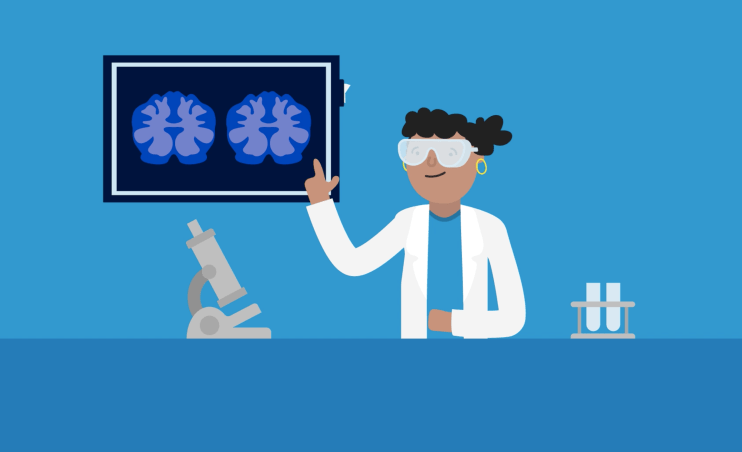People can heal from an addiction—especially when they get the support they need to relieve withdrawal symptoms, navigate triggers, and make positive changes. This video explores why many people find it difficult to control or stop drug use and how research conducted and supported by the National Institute on Drug Abuse (NIDA) can help people find prevention and treatment strategies that work for them.
Video length: 3:58
Transcript
[Male voiceover]
Addiction and substance use disorders are often misunderstood. Some people believe continuing to use drugs even when they cause harm is a sign of weakness or poor character—but that’s far from the truth.
Many years of research show that substance use disorders are complex, chronic, and treatable medical conditions that involve changes in our brains. Researchers think it works like this:
Our brains have what scientists call a “reward system.” Behaviors that help us survive and stay healthy produce small increases in naturally occurring brain chemicals called “neurotransmitters” in parts of the reward system related to pleasure. That helps explain why biting into a favorite food, seeing someone you love smile, or learning something new can all feel so rewarding.
When we engage in new, rewarding behaviors, the brain also builds connections between that behavior and related “cues,” like sights, sounds, or feelings that remind us of that reward. That’s why just walking by a restaurant that smells good can make us hungry.
And that’s a good thing. This system motivates us to repeat behaviors that help us survive, such as eating, caring for each other, or honing new skills.
Drugs are chemicals that mimic the neurotransmitters of the brain’s reward system—but in many cases, using drugs can affect the reward system more powerfully than other activities.
For some of us, using drugs repeatedly can change the way certain areas of the brain work and communicate with each other. These changes can make it harder to enjoy healthy activities, and people sometimes start to need to use drugs to feel good or okay. Suddenly stopping or significantly reducing regular drug use may even cause withdrawal symptoms that can range from powerful negative emotions to flu-like symptoms to life-threatening emergencies. Many withdrawal symptoms are treatable, though for many, using drugs may feel like the only way to alleviate them.
With repeated drug use, the brain may also build much stronger connections between drugs and cues associated with them—cues that may be difficult to avoid. Some people call these “triggers”—or people, places, things, and feelings that remind a person of using drugs and can make them really want to use them again.
Repeated drug use can also weaken circuits in the brain that help people exercise self-control and tolerate stress. This can make it even more difficult for people to control their drug use—even when it causes harm, when it doesn’t feel the way it used to, or when it gets in the way of other parts of someone’s life.
These can be signs of a substance use disorder.
While certain factors make substance use disorders more likely to occur in some people than in others, anyone can develop a substance use disorder, whatever their race and ethnicity, sex and gender, or economic status.
Addiction can make quitting drugs or controlling drug use very difficult without support—no matter how much someone wants to stop or cut back.
When someone tries to stop using drugs, the strong associations between drugs and related cues and new or ongoing experiences of stress may lead them to experience cravings and use drugs again. Returning to use after stopping, or relapse, is not uncommon. And like addiction itself, it’s not a sign of weakness.
While drugs can change the brain, treatments—and time—can change it too. People can heal from an addiction—especially when they get the support they need to relieve withdrawal symptoms, navigate triggers, and make positive changes. Researchers have developed therapies to support recovery, including safe and effective medications for some substance use disorders like opioid use disorder.
And because each person, and brain, is unique, researchers continue to learn more about how drugs and addiction work. They are always looking for new and better ways to prevent, treat, and manage substance use disorders in every person and every community.
If you or someone you care about has a substance use disorder, you can learn more about getting help by calling the National HelpLine at 1-800-662-HELP (4357) or by visiting findtreatment dot GOV
To learn more about substance use and addiction research, log on to nida.nih.gov

